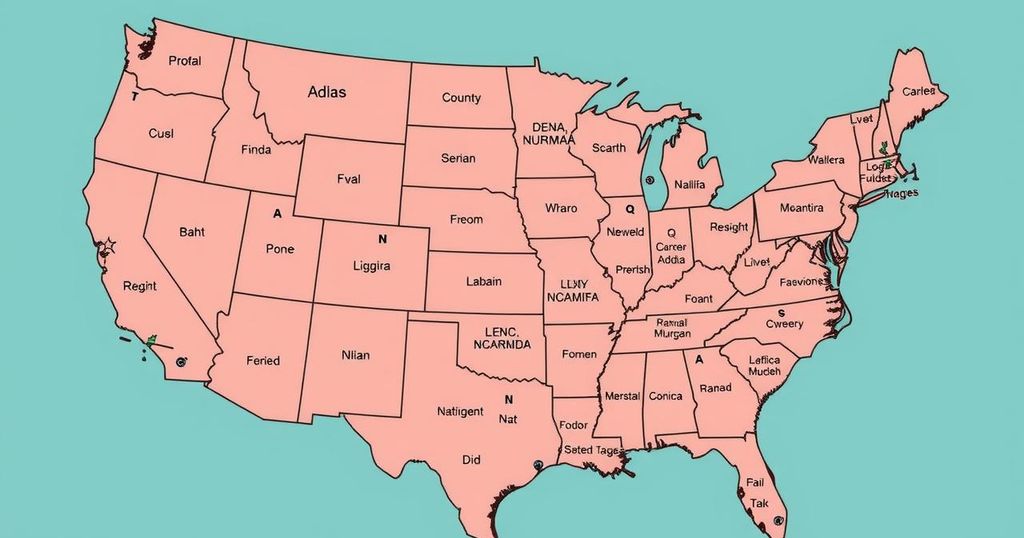World news
AFRICA, ASIA, BID, BIDEN, CUBA, DEMOCRATS, DEPARTMENT OF HOMELAND SECURITY, DONALD TRUMP, EL SALVADOR, EUROPE, FWD. US, JOE BIDEN, LEGISLATION, MIGRATION, NICARAGUA, NICOLAS MADURO, NORTH AMERICA, PHILIPPINES, POLITICS, PRESIDENTIAL ELECTION 2024, PRESIDENTIAL ELECTIONS, SOUTH AMERICA, SUDAN, U. S. DEPARTMENT OF HOMELAND SECURITY, UKRAINE, VENEZUELA
Marcus Chen
0 Comments
Biden Extends Deportation Relief for 900,000 Immigrants from Venezuela, El Salvador, Ukraine, and Sudan
President Biden has renewed Temporary Protected Status for 900,000 immigrants from Venezuela, El Salvador, Ukraine, and Sudan, allowing them 18 months of deportation relief and work permits. This move counters potential restrictions under the incoming Trump administration, reflecting Biden’s commitment to and expansion of TPS for over a million individuals from 17 countries. Activists emphasize the need for broader protections for more communities.
In a notable action by the Biden administration, President Joe Biden has announced an extension of deportation relief under the Temporary Protected Status (TPS) program for approximately 900,000 immigrants from Venezuela, El Salvador, Ukraine, and Sudan. This extension grants these individuals a reprieve from deportation and access to work permits for an additional 18 months, counteracting potential limitations that may arise under the incoming Trump administration. This decision reflects a continued effort to expand immigration protections which have increased significantly since Biden took office in 2021, with TPS now covering over one million individuals from 17 different countries.
The Temporary Protected Status program is designed to provide refuge to individuals from countries experiencing extraordinary conditions such as armed conflict or natural disasters. The Biden administration’s decision is particularly significant for the Venezuelan community, which constitutes the largest group under TPS, with around 600,000 individuals eligible. The Administration cites extreme violence and instability in Venezuela under President Nicolas Maduro as justification for this protective status.
Despite this progress, the administration’s measures have fallen short of demands from certain activists and Democratic members of Congress, who are advocating for broader TPS designations to include more recent arrivals and individuals from additional nations. Todd Schulte, president of the advocacy group FWD.us, emphasized that the extensions will allow many immigrants to continue supporting their families and contributing to the economy, yet he urged the Biden administration to consider extending TPS to other affected countries, such as Nicaragua.
Former President Trump, who will assume office again, had previously sought to terminate TPS for most immigrants during his last term but faced legal challenges that limited his ability to do so. As such, the ongoing focus on the protections afforded by TPS and the status of these immigrant communities remains critical in the face of shifting political landscapes.
The Temporary Protected Status (TPS) program offers legal protection from deportation to immigrants from certain countries experiencing significant crises. Initially established to aid those affected by war, natural disasters, or other extraordinary circumstances, TPS has been a vital lifeline for many vulnerable populations. Since President Biden’s administration began, there has been a concerted effort to expand the program’s reach, reflecting a more compassionate approach towards immigration issues compared to past administrations, particularly during Donald Trump’s presidency when attempts were made to roll back TPS protections.
The Biden administration’s decision to extend TPS for 900,000 immigrants from Venezuela, El Salvador, Ukraine, and Sudan is a significant development in U.S. immigration policy, providing critical protection and work opportunities for affected communities. This move underscores the administration’s commitment to uphold humanitarian principles amid growing political pressures. While the extension is welcomed, calls for broader protections highlight ongoing challenges within immigration reform, signaling a need for continued advocacy for expanding TPS to include additional nationalities in the future.
Original Source: www.hindustantimes.com




Post Comment